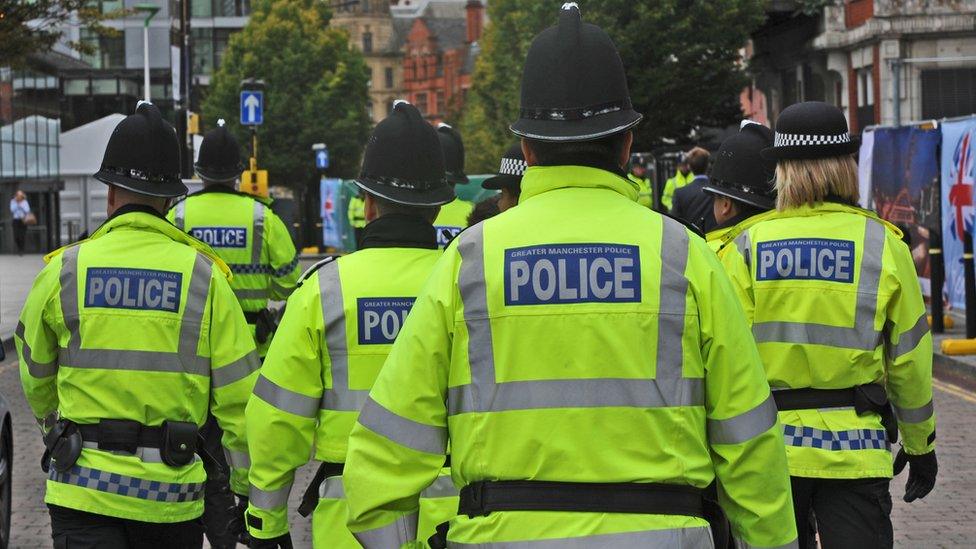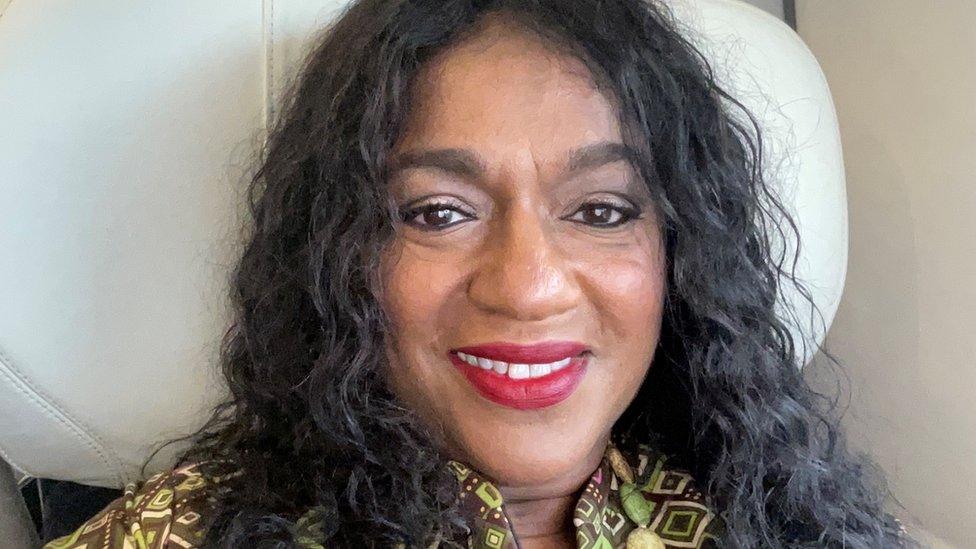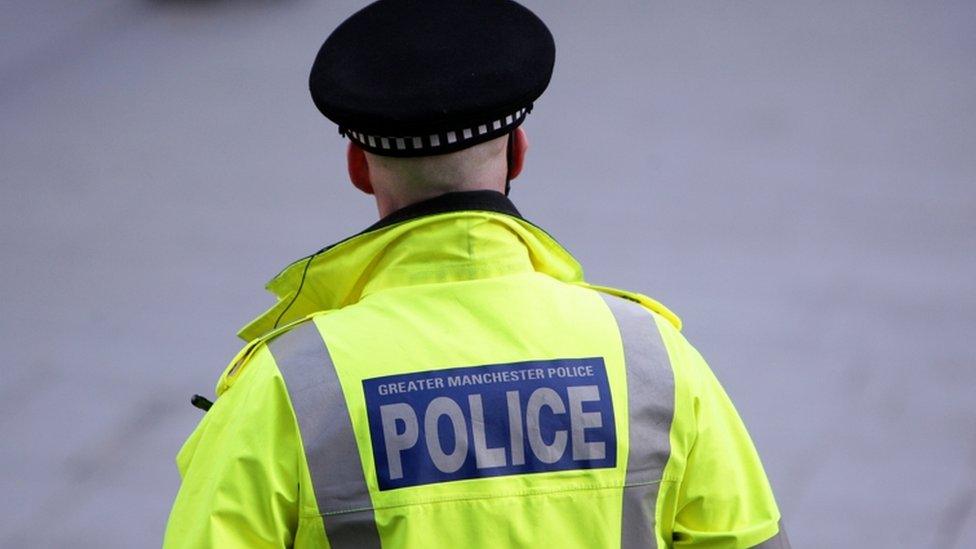Greater Manchester Police 'remains institutionally racist'
- Published

GMP said it was working hard to ensure the communities it served were "treated equally"
One of England's biggest police forces remains "institutionally racist" and must do more to tackle the problem, a leading equality advisor has said.
A 2021 report found black people were more likely to be arrested, Tasered and searched by Greater Manchester Police (GMP) than white people.
Elizabeth Cameron, who worked with GMP on the report, said its systems were "perpetuating racial discrimination".
GMP said it was working hard to ensure communities were "treated equally".
Ms Cameron was chairwoman of Greater Manchester Race Equality Panel at the time of the report in 2021, a body which advises public organisations across the region and works to "promote racial equality, tackle racial discrimination and foster positive relationships between ethnically diverse communities".
The report found GMP were four times more likely to use force against black people in comparison to white people, 2.8 times more likely to arrest them, 5.7 times more likely to use a Taser on them and 5.3 times more likely to use stop and search powers against them.
It also found officers were more likely to refer to the physique of black people when justifying a decision to use force.
At the time, Chief Constable Stephen Watson rejected the claim, adding while it was feasible GMP could employ "somebody who behaves in a racist way", they would be "rooted and booted out" of the force.
A force representative said that as of July 2023, those figures had dropped and GMP was now 2.1 times more likely to use force against black people, 2.6 times more likely to use a Taser against them and 2.1 times more likely to use stop and search powers against them when compared to white people.
'Lesser view'
Ms Cameron told BBC Radio Manchester two years on, it was clear the "structural practices within the organisation [were] perpetuating racial discrimination that people experience".
"We do not think it's Inspector X [or] Constable Y, we think this is systems, because whatever they do singularly... if the whole system had made the change, these things wouldn't be perpetuated," she said.
"I won't think that [the force is doing enough] until I see certain figures go down.
"I think there needs to be an acknowledgement that at a certain level, people see black and brown people as lesser."
She said she believed in a "majority of cases", people were "working damn hard to get this right", but a "certain level of inequality" was being accepted and to make any improvements, there was a need to "start from the point of where reality is".

Ms Cameron said she believed a "certain level of inequality" was being accepted in the force
She said recruitment schemes aimed at increasing diversity in the force had "made some progress in attracting Asian officers", but the "representation of black officers... remains quite poor".
"It's only 1% of the workforce and you have to ask yourself why that is," she said.
"That's a decline. There was 3% before.
"If you deny that there's the problem, you're not doing the work, because it's that work that you need to do."
She added there had been "improvements" across GMP, but added "until we look at where there aren't the improvements and accept that is because intrinsically, there is a lesser view around this collection of people, then we won't change anything".
GMP's chief resources officer Lee Rawlinson said the force was "working hard to ensure that Greater Manchester's diverse communities are treated equally".
He said that work was to ensure people were treated "with respect and courtesy" and felt "listened to, understood, and represented by those who have the privilege of keeping them safe".

Why not follow BBC North West on Facebook, external, X, external and Instagram, external? You can also send story ideas to northwest.newsonline@bbc.co.uk, external
Related topics
- Published27 July 2021
